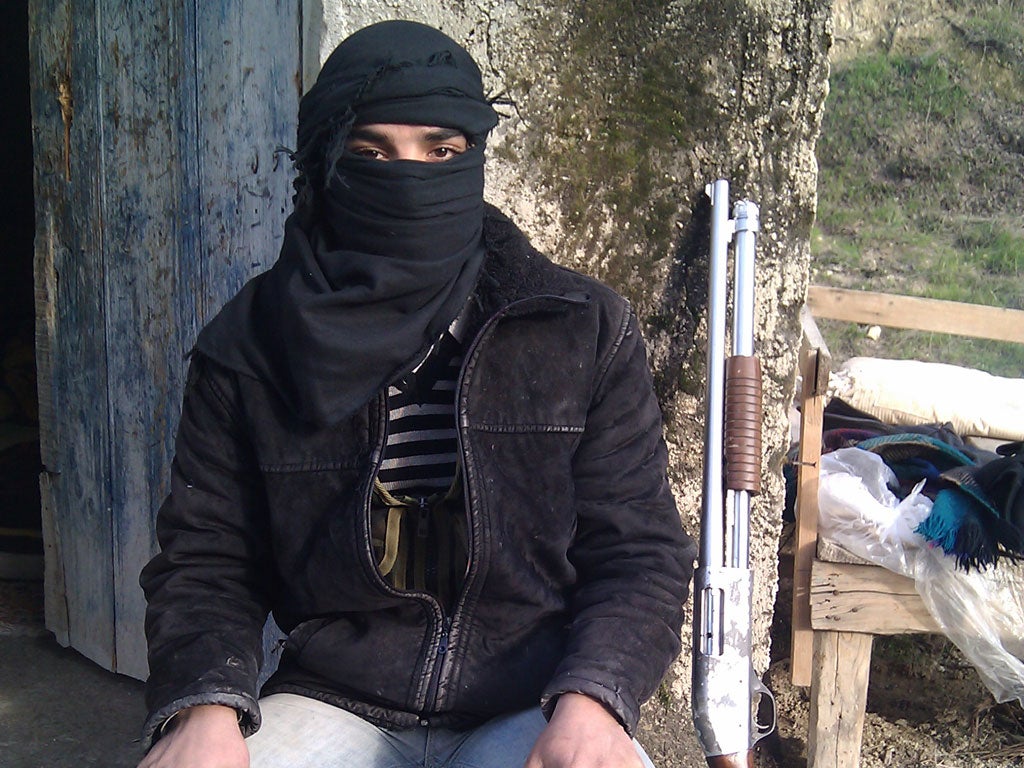Hague refuses to arm 'legitimate' Syrian opposition

Your support helps us to tell the story
From reproductive rights to climate change to Big Tech, The Independent is on the ground when the story is developing. Whether it's investigating the financials of Elon Musk's pro-Trump PAC or producing our latest documentary, 'The A Word', which shines a light on the American women fighting for reproductive rights, we know how important it is to parse out the facts from the messaging.
At such a critical moment in US history, we need reporters on the ground. Your donation allows us to keep sending journalists to speak to both sides of the story.
The Independent is trusted by Americans across the entire political spectrum. And unlike many other quality news outlets, we choose not to lock Americans out of our reporting and analysis with paywalls. We believe quality journalism should be available to everyone, paid for by those who can afford it.
Your support makes all the difference.The Foreign Secretary, William Hague, said yesterday that Britain would recognise the opposition Syrian National Council as the "legitimate representative of the Syrian people", but specifically ruled out arming the group to help it topple the Assad regime.
However, as world leaders and diplomats from more than 60 countries met in Tunis at the Friends of Syria conference to discuss the crisis, the SNC, a largely Turkish-based exile group which is the best organised opposition organisation, made it clear that it would not wait for an international consensus to provide Syrian resistance groups with the military means to defend themselves.
The SNC said in a statement: "The Friends of Syria should not constrain individual countries from aiding the Syrian opposition by means of military advisers, training and provision of arms to defend itself."
The words were later echoed by Saudi Arabia's Foreign Minister who described arming the SNC as "an excellent" idea. Qatar's Foreign Minister proposed an Arab peace force to impose a settlement on the country that most analysts agree is now in a state of civil war.
Although the international community is heavily divided on the issue, there is a growing feeling among Syrians that there may be no other option but to take the fight to Bashar al-Assad. Speaking to The Independent at the conference yesterday, Nasser al-Dhaheri, a writer and member of the SNC, said: "We assume that the Friends of Syria will help the Free Syrian Army and we expect that if they don't ... we will do it under the table."
Mr Hague said he could understand that opponents of the Syrian government would find it "frustrating" that the SNC military wing would not receive military backing from the UK. But he added that "we have in the European Union an arms embargo on Syria". He said that Assad's government had become a "criminal regime".
Yesterday's conference was organised after talks at the United Nations lost momentum amid opposition from permanent Security Council members, China and Russia. "I hope those countries will take note of this strength of international feeling and support that we are seeing here in Tunis," Mr Hague said. "There are more than 60 countries coming together, because it means that they are increasingly isolated in their views."
Alexei Pushkov, a Russian politician, said after meeting Mr Assad that the Syrian President sounded confident and demonstrated no sign he would he step aside.
The SNC: Who are they?
The SNC is an umbrella group that claims to represent a wide spectrum of Syrian opposition organisations. Led by Burhan Ghalioun, a Paris-based intellectual and long-standing critic of the Assad government, it is supported by various exiled opposition groups including the Muslim Brotherhood's Syrian wing, dissidents behind the 2005 Damascus Declaration, which called for reform in Syria, and limited elements of the Kurdish opposition.
But there are concerns about whether the group should be recognised as a legitimate voice for the Syrian people. Firstly, despite trying to court groups on the ground, including the Local Co-ordination Committees and Free Syrian Army (FSA), it is seen as being largely run by exiles who are out of touch with today's Syria. The FSA's Riad al-Asad has said it has seen little political support from the SNC and has threatened to break off relations.
A shaky treaty to co-operate with the National Co-ordination Committee, the other major opposition group, appears to have fallen through. Western diplomats also privately express concerns about the heavy dominance of the Muslim Brotherhood.
Loveday Morris
Join our commenting forum
Join thought-provoking conversations, follow other Independent readers and see their replies
Comments